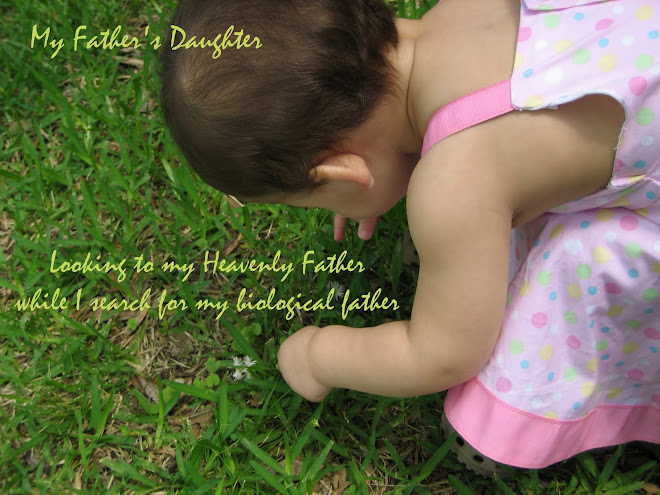I'm still searching for my bio-father. It's slow and I feel like I've hit another brick wall. There are avenues that I can pursue to find more information, but one way seems like a cliff and the other way seems like a forest fire. So which way do I go? Both ways seem pointless. But I guess I'll chose one, then the other. When I can get my game face on again.
*********
I've posted again at FamilyScholars.org and I'm reposting it here. Be sure to read the comments here.
Can I make a faith-based argument about donor conception in public?
The short answer is yes.
Over the last several decades, our country and the makeup of our culture have slowly begun to embrace a pluralistic worldview when it comes to life and the pursuit of happiness. A plethora of worldviews are gaining influence and strength within the public square. Unfortunately, those who profess a strong conviction for tolerance of all kinds of people and ideas are actually becoming more and more intolerant of the segment of our nation that happens to view life and happiness from a ‘religious’ perspective. From their view point, it seems that to engage in public debate, one does not need to bring up their ‘religion’ because ‘religion’ isn’t relevant or valid to today’s complicated social issues.
So to argue that one should not acknowledge their religion in public debate is to say that every point of view is valid except a religious POV. Why? Simply because someone doesn’t acknowledge the validity of a religious view over them doesn’t make the argument invalid.
The long answer goes something like this: every time anyone argues a position on a given topic, it’s always a “faith-based” answer. Your faith may not be the same faith as an organized religion; however everyone has some type of faith, including atheists. An atheist has faith in his or her assessment that there is no God. Basically faith is trust, so they are trusting in their own judgment/intellect/experience that what they believe is right. So there is trust, even if the person is claiming to have no faith in any deity.
How do you interpret the world around you? How do you determine what is right and what is wrong? Where do your ethics come from? How do your ethics influence what you believe about a particular subject? What is your worldview? Do you have faith that your perception of the world is correct?
As a Christian, I believe Scripture, when it says that God created the heavens and the earth. He determines what is right and wrong because of His character; He is always “right” and whatever is not right is sin; treason against God. So my sense of right and wrong and my ethics come from who God is. My view of who God is influences my POV on a given subject.
If a person puts their faith/trust/belief in secularism or atheism or humanism, etc., then I think it’s fair to say that everyone has some kind of “faith” so therefore every argument is a “faith-based” argument. Whether they may recognize it or not.
Sunday, November 14, 2010
Subscribe to:
Comments (Atom)


